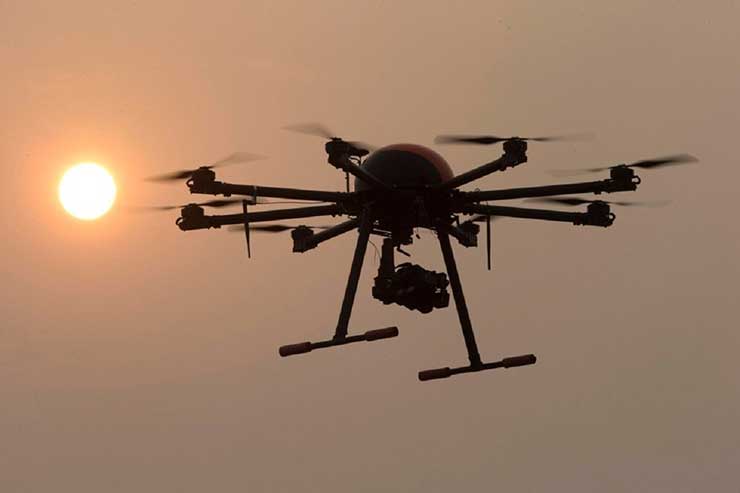
New Delhi. “Rogue drones” can be countered only by drones as military solutions in a civilian environment is not going to happen, said a senior official of French defence conglomerate Thales.
Laser-directed energy weapons, missile solutions and radio-frequency (RF) jamming devices were being asked for in India as counter-drone measures, said Alex Cresswell, executive vice president, land and air systems, Thales.
“A lot of people (in India) are asking for drone countermeasures without really understanding how difficult it would be to actually use the things that they are asking for,” he said.
To use an electromagnetic pulse or a very strong RF to deal with rogue drone, one would have to fly a legal drone out and then use it to deploy radiation in a limited area, he said.
“You can do it very very locally,” Cresswell said. “Otherwise, you just bring a whole area to a standstill and that doesn’t work. And Gatwick illustrated that doesn’t work.”
“Gatwick (airport) bought an Israeli counter-drone solution the next day (of the incident) and they never switched it on. Because they can’t transmit laser radiation in a built-up area and they can’t transmit RF on the mobile phone (which is operating the drone). So, they can’t jam it (rogue drone),” he said.
“So, they (Gatwick airport) have bought a system without thinking about whether they could use it. And this is the same being repeated all over the place,” he said.
The Indian Ministry of Civil Aviation has issued a national counter rogue drones guidelines stating that a counter rogue drone system “must be able to tell the difference between those (legal) drones and a single rogue drone that is operating with malicious intent to avoid fratricide”.
The number of illegal drones in India is likely to be between 50,000 and 60,000, co-chair of a FICCI committee on drones Ankit Mehta had said.
According to the Thales official, one can fire a missile or use jammers to deal with a rogue drone in a military environment, but the technology to counter such drones in a civilian environment is yet to mature fully.
“There are lots of people talking about military solution in a non-military context, and to me, it is just not going to happen,” Creswell said.
“In the end, the measures against (rogue) drones… will most certainly be using (legal) drones to counter (rogue) drones. I believe that it will be a long-term solution in a civilian environment,” he said.
When asked if Thales is working to develop such technology, Creswell replied: “Drones to counter drones, yes, we are absolutely working on that.”
But, he added, that these technologies were not yet in the state of maturity where they can be deployed.
Asked about the demand from India regarding these holographic radars, Cresswell said: “We have got proposals for this radar in at least two places (airports) in India… I am pretty sure that we will see many more in the forthcoming months.”








